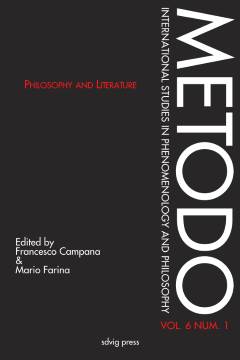The destitution of words
the death of the author and the aporias of writing in Levinas's "Totality and Infinity"
pp. 143-160
Abstract
In this paper I examine the epistemological and the ethical consequences of what I call the belief in the death of the author. Drawing on Emmanuel Levinas’s Totality and Infinity, I argue that when separated from the writer’s intention, the written text becomes epistemically and ethically deficient. I then examine two aporias which emerge when the Levinasian analysis of writing is applied to Totality and Infinity qua a written text: if written signs are epistemically deficient, why should we trust Levinas’s written insights? Equally, if a written text is ethically flawed, how are we to understand the multiple accounts of Levinas’s commentators attesting to an ethical dimension of reading Totality and Infinity? I then suggest that the above aporias can offer a corrective to the epistemological and ethical consequences of the belief in the death of the author identified in the first part of the paper.
Publication details
Published in:
Campana Francesco, Farina Mario (2018) Philosophy and literature. Metodo 6 (1).
Pages: 143-160
Full citation:
Kowalewski Jakub (2018) „The destitution of words: the death of the author and the aporias of writing in Levinas's "Totality and Infinity"“. Metodo 6 (1), 143–160.


